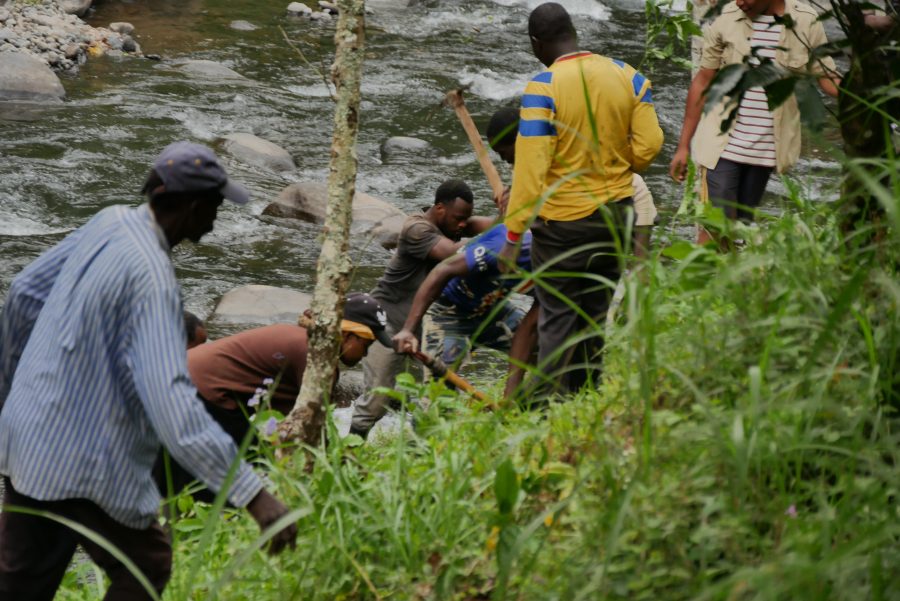
Case Study: Sustainable Water Management Partnerships, Tanzania
The Pangani Basin in Northern Tanzania is one of the country’s bread baskets.
The Usa River and Weruweru sub-catchments are the most significant water
contributors to the Pangani Basin. Located on the slopes of the Kilimanjaro and
Meru mountains, they host diverse wildlife and three million inhabitants. The
livelihood of people living in the basin depends on the fertile soil and accessible
clean water. However, manifold challenges affect the area. Climate projections
indicate more frequent droughts and floods in the region, where increasingly
erratic rainfall already leads to flooding and erosion. Additionally, population
and economic growth are increasing the pressure on the available natural
resources, be it through land clearings for agricultural purposes or the pollution
and overuse of water. The changing climate patterns and unsustainable use of
natural resources have resulted in water scarcity, pollution of water resources,
public health deterioration, increased conflict between water users, and
environmental degradation.

It became clear that a forum was needed
to develop solutions for the manifold and
intertwined environmental challenges. Realizing
that collective action is necessary to
improve the situation in the basin, public,
private, and civil society representatives organized
first discussion rounds. They decided to unite their
capabilities and contribute, each according to their capacities,
to address their shared challenges.
Based on this idea, the Partnership for Sustainable Water
Management (SUWAMA) in the Usa River was established
in 2017. Its establishment and implementation was initiated
in close coordination with the Pangani Basin Water Board.
Stakeholders from all sectors are actively involved from the
beginning, down to the village level.